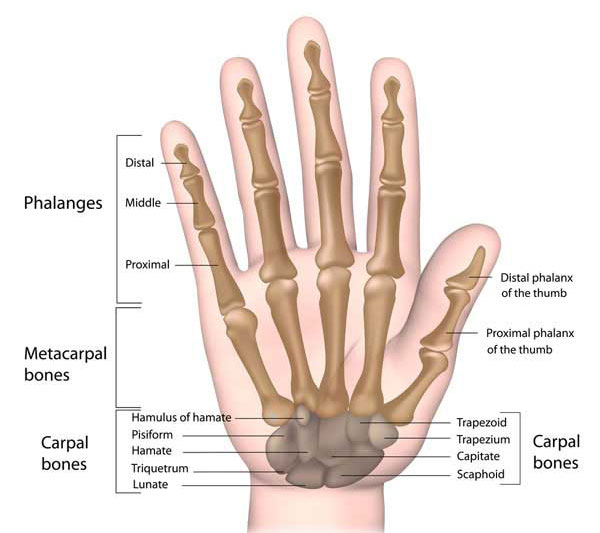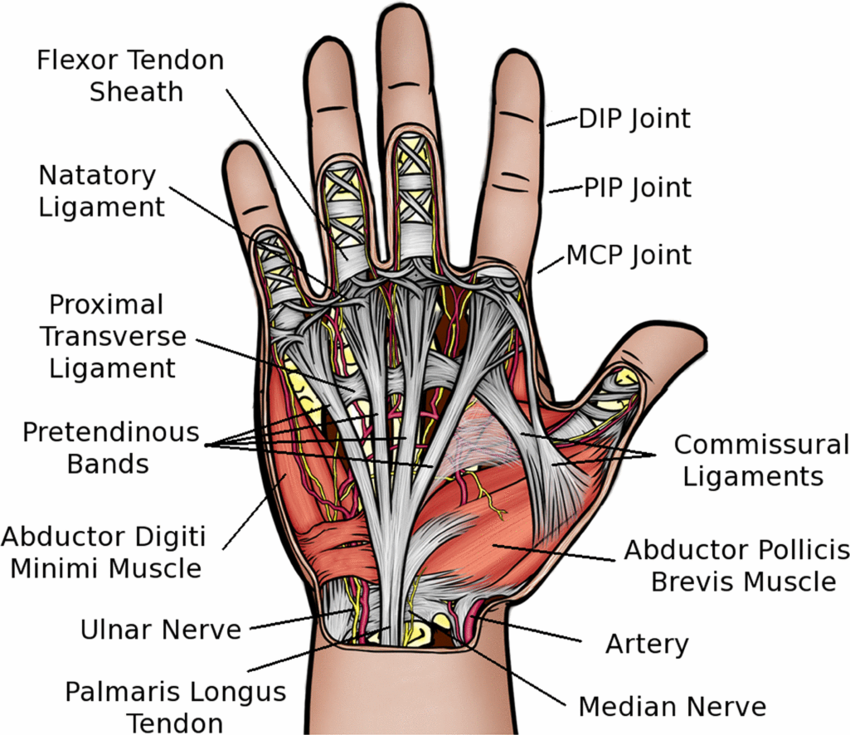What is it?
There are many injuries that can happen to our fingers and thumbs but the most common are contusion (whacking your thumb), dislocation and tendonosis.
What do they feel like?
Contusion is generally an intense dull pain but can also feel like numbness if the nerve has been crushed. As the blood starts to return to the area the pain is felt more like a throbbing or tightness. As the nerve starts to heal you may feel pins and needles or a cold feeling.
Dislocation also feels like an intense dull pain but you will have a feeling that something is not right in that area. Once relocated the area feels more normal but as the nerve and blood starts to work again you maybe feel the dull pain increase.
Tendonitis is a gradual increase of pain along the tendon. Pain can be worse at night or by the end of the day after using your fingers repetitively eg typing or using the mouse all day.
What causes these injuries?
Contusions are caused by a hit or crush e.g. something falling on or hitting your thumb or finger. For example a hammer, door or other heavy object.
Dislocation is often obvious with the finger or thumb pointing in an abnormal direction however a small dislocation in the joints in our fingers can often be missed. Fractures are also very common with dislocations and as such all dislocations should be sent for x-ray to eliminate a fracture. These are caused by catching your finger or thumb on something eg somebodies shirt, a table or other object or landing awkwardly.
Tendonosis is an over-use of one tendon repetitively. Over time the tendon can no longer handle the load and inflames causing pain, aching and an inability to use the thumb or finger without pain.
How are they diagnosed?
Your Physiotherapist can diagnose a contusion, dislocation or tendonosis from your symptoms and from a few specific tests around your thumb, finger and forearm. They can normally be diagnosed without invasive tests or investigations however you may be referred for an x-ray if you have had a dislocation. Further investigations with ultrasound may be required is your tendonosis is not resolving in an expected time frame to specifically diagnose the extent of the inflammation and eliminate any other causes for slow recovery.
How can Back in Action Physiotherapy help?
At Back in Action we will talk to you and listen to how your pain is affecting your everyday activities. We will look at the thumb and finger and also whole mechanical chain including how you grip, lift and use your hands, wrist and arms to do normal daily tasks and the aggravating activities. We will treat the local symptoms with techniques such as mobilisations, massage, stretching, acupuncture, and give you some basic home exercises to help you get better, faster. We can advise and educate you about your injury and set goals with you to achieve in and out of our sessions. Painkillers and Anti-inflammatories can help to relieve some pain and we recommend you see your local Pharmacist or Doctor regarding the best type for you.


